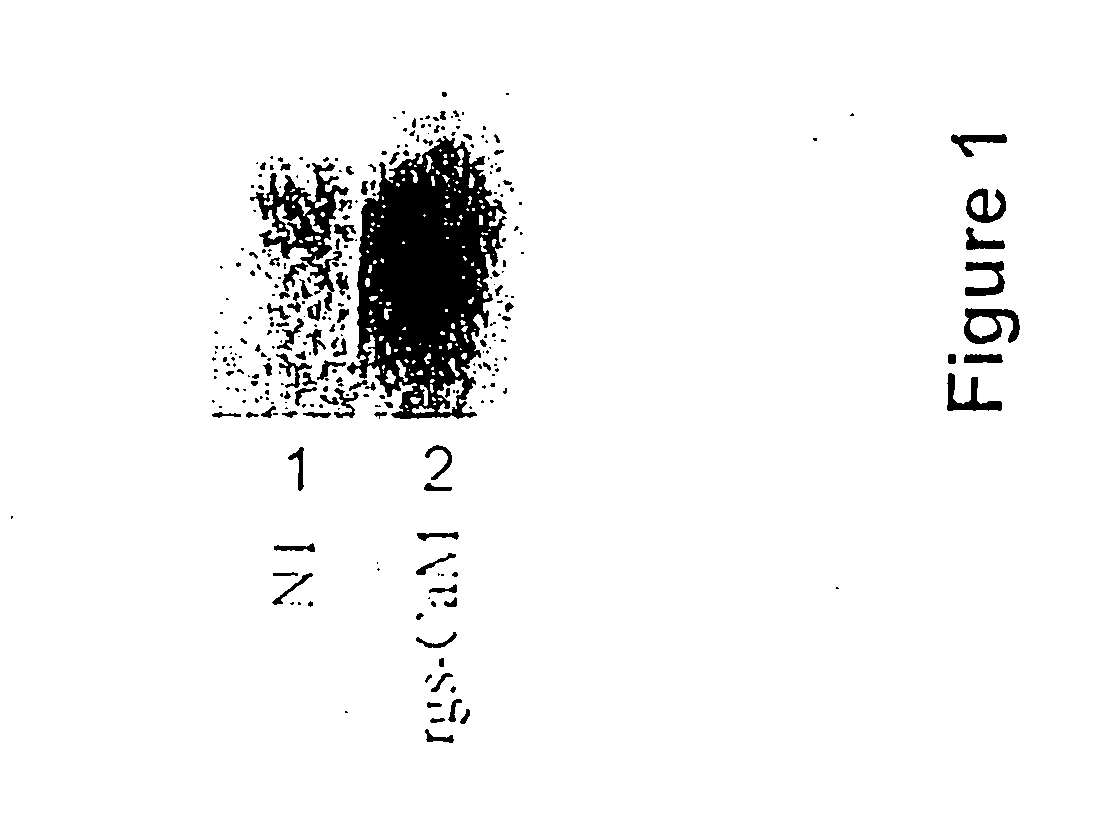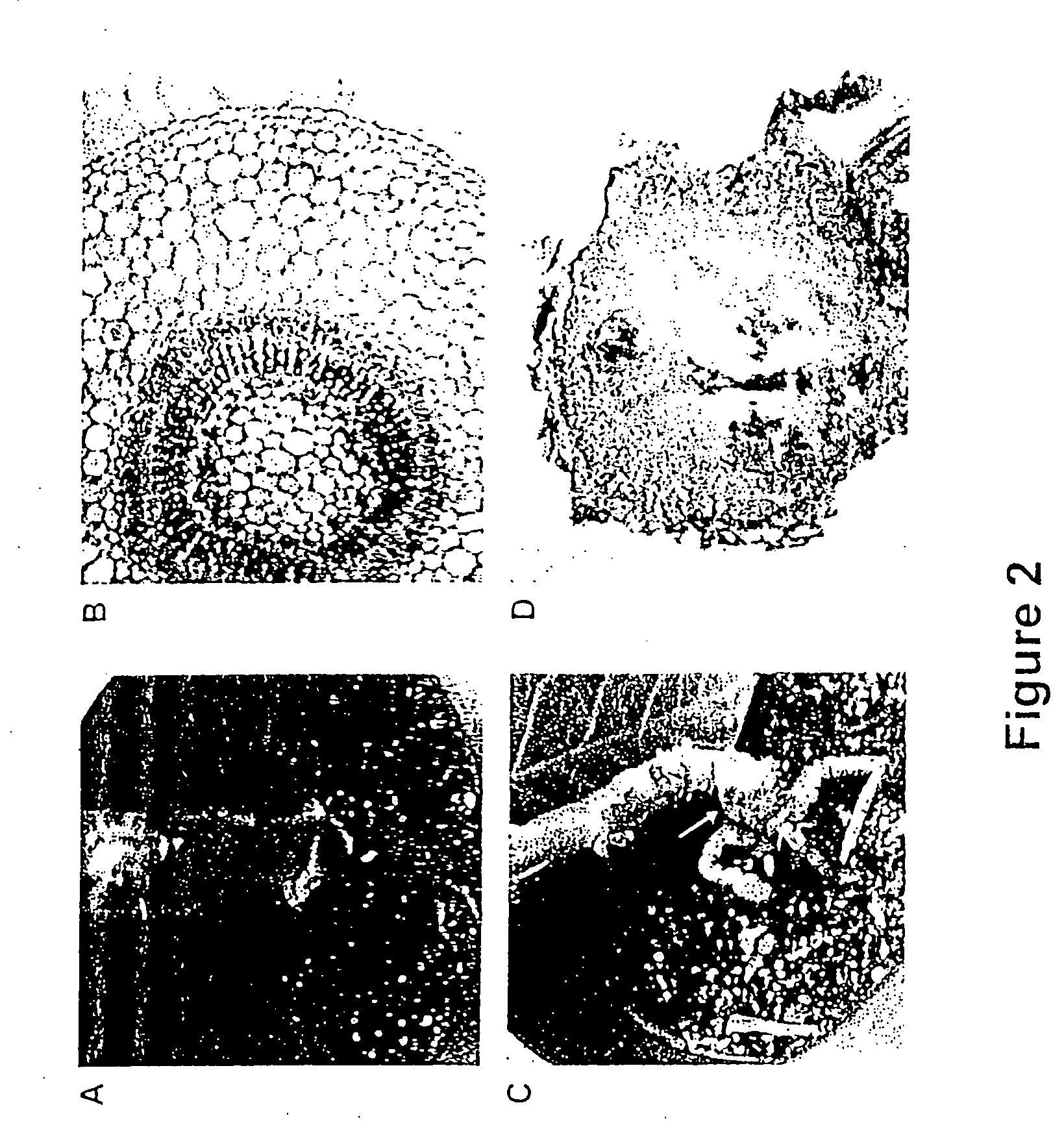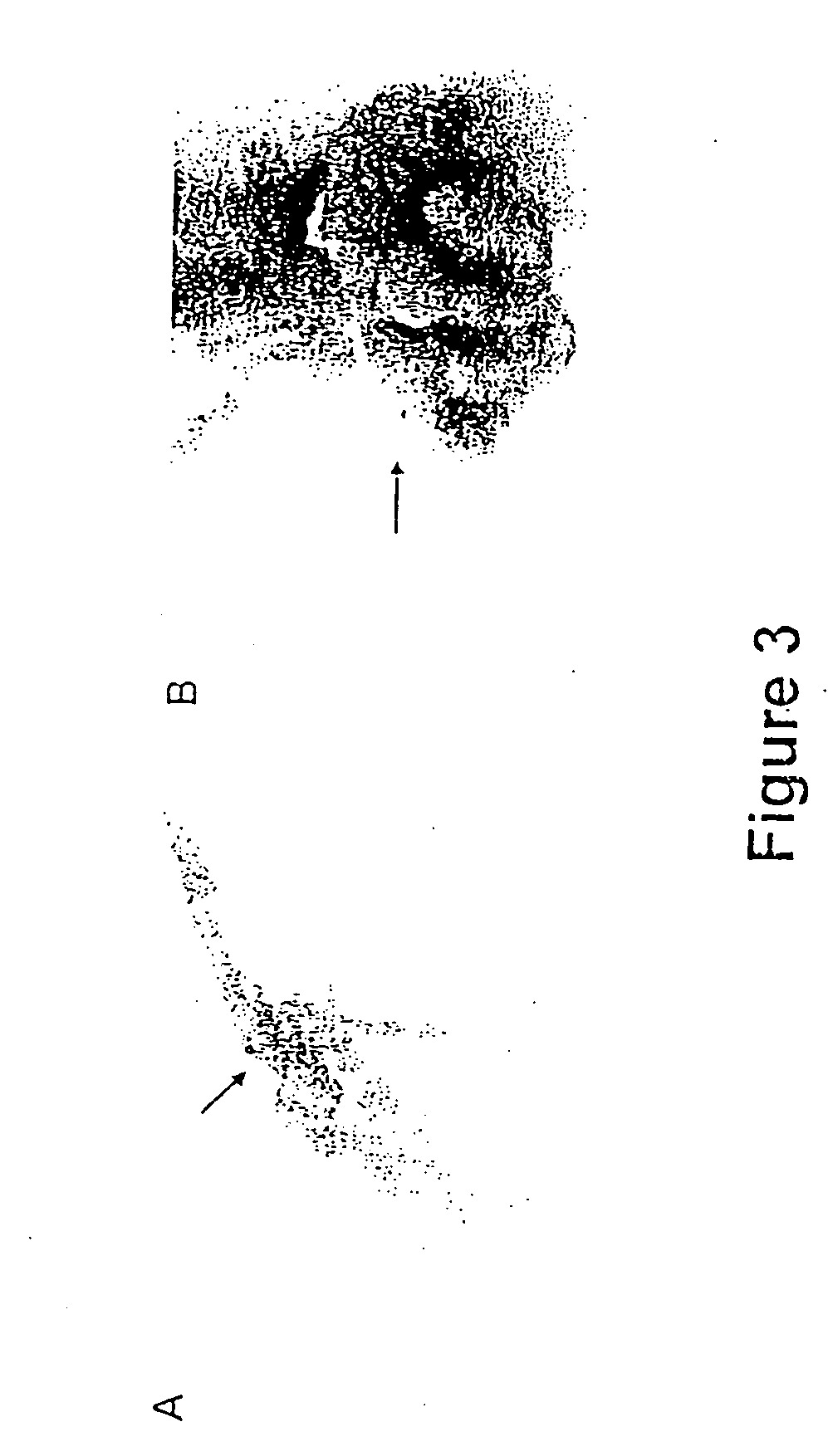Control of post-transcriptional gene silencing in plants
a technology of post-transcriptional gene and plant, applied in the direction of peptide sources, organic chemistry, biochemistry apparatus and processes, etc., can solve the problems of interfering with both the initiation and maintenance of ptgs, and achieve the effects of enhancing gene expression, enhancing gene silencing, and inhibiting gene expression
- Summary
- Abstract
- Description
- Claims
- Application Information
AI Technical Summary
Benefits of technology
Problems solved by technology
Method used
Image
Examples
example 1
Isolation of cDNAs Encoding HC-Pro Interacting Proteins from Tobacco
[0081] In order to identify HC-Pro-interacting plant proteins, we screened a yeast two-hybrid tobacco cDNA library (kindly provided by Dr. Chris Mau, UG Davis) using the tobacco etch viral HC-Pro as bait. Two million cDNAs were screened and sixteen HC-Pro-interacting tobacco cDNAs were isolated on the basis of ability to grow in the absence of histidine and to activate the lacZ gene. Eight of these tobacco cDNAs met the following criteria. They did not interact with empty bait or negative control (lamin) plasmids and, when cloned into the DNA binding domain fusion plasmid, they interacted positively with HC-Pro in the activation domain fusion plasmid (reciprocal positives). The cDNAs for these eight putative HC-Pro interacting proteins were sequenced and comparative sequence analyses were carried out using the programs BLAST and FASTA. The cDNA encoding rgs-CaM was identified [SEQ ID NO: 1]. Based on this sequence,...
example 2
Stable Transformation Experiments using the rgs-CaM cDNAs
[0084] To demonstrate the role of rgs-CaM we overexpress or interfere with the expression of rgs-CaM cDNAs using stable transformation techniques. An alternative approach using potato virus X (PVX) as a vector to express high levels of rgs-CaM was pursued simultaneously.
[0085] Initial stable transformation experiments use cDNAs for rgs-CaM under control of the strong cauliflower mosaic virus 35S promoter for stable transformation of both Nicotiana tabacum (tobacco) and N. benthamiana (a species related to tobacco that is well suited for experiments using viral vectors). Greater than 30 individual primary transformants in both tobacco species are obtained. The primary transformants are selfed and are analyzed for segregation of the transgene (initially inferred by selection on kanamycin). Lines that segregate 3:1 for kanamycin resistance and also have a visible phenotype are selected for further studies. The selected lines ar...
example 3
rgs-CaM is a Plant Regulator of Post-Transcriptional Gene Silencing
[0087] The phenotype of a number of independent rgs-CaM expressing transgenic lines is found to mimic that seen in P1 / HC-Pro transgenic lines, and this surprising finding indicates that rgs-CaM, like P1 / HC-Pro, acts as a regulator of silencing. We use two different assays to directly demonstrate the ability of this protein to affect gene silencing. There are four lines of evidence that rgs-CaM regulates PTGS and these are described below:
[0088] 1) The phenotype of rgs-CaM transgenic lines mimics that of transgenic plants expressing the HC-Pro suppressor of silencing. Expression of P1 / HC-Pro in transgenic plants confers several unique developmental characteristics, the most prominent of which are slow growth with reduced root biomass and development of a tumor at the junction of the stem and the root (compare the tumor in FIG. 2C to normal stem / root junction in FIG. 2A). The tumor associated with expression of P1 / HC...
PUM
| Property | Measurement | Unit |
|---|---|---|
| thermal melting point | aaaaa | aaaaa |
| temperature | aaaaa | aaaaa |
| pH | aaaaa | aaaaa |
Abstract
Description
Claims
Application Information
 Login to View More
Login to View More - R&D
- Intellectual Property
- Life Sciences
- Materials
- Tech Scout
- Unparalleled Data Quality
- Higher Quality Content
- 60% Fewer Hallucinations
Browse by: Latest US Patents, China's latest patents, Technical Efficacy Thesaurus, Application Domain, Technology Topic, Popular Technical Reports.
© 2025 PatSnap. All rights reserved.Legal|Privacy policy|Modern Slavery Act Transparency Statement|Sitemap|About US| Contact US: help@patsnap.com



